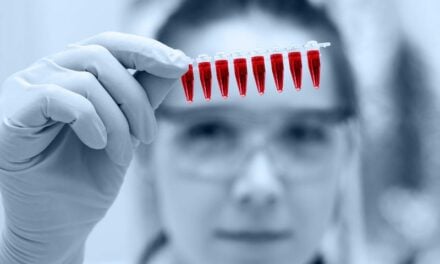A study conducted by the Broad Institute of MIT and Harvard has affirmed the performance of the GeneReader NGS system from Qiagen NV, Hilden, Germany, for detecting gene variants known to be clinically relevant in colorectal cancer.
The analysis is the first performance assessment of the GeneReader NGS for delivering insights about relevant cancer mutations in a laboratory setting. Data from the GeneReader NGS compared favorably with Qiagen TherascreenRas mutation tests based on real-time qualitative polymerase chain reaction (PCR) and pyrosequencing, as well as with a next-generation sequencing (NGS) workflow using the MiSeq sequencer by Illumina, San Diego. All of the methods were used to test the same 43 tumor samples of confirmed metastatic colorectal cancer from formalin-fixed, paraffin-embedded (FFPE) tissue specimens.
“Qiagen created the GeneReader NGS as the first complete sample-to-insight NGS solution designed for any lab to deliver actionable results, and this analysis supports that capability,” says Peer M. Schatz, Qiagen CEO. “Integrated with the most comprehensive, up-to-date knowledge base through our Qiagen Clinical Insight software, the GeneReader NGS is a turnkey solution that is affordable, easy to run, and delivers clinically relevant insights.”
In the analysis, data from the GeneReader NGS system were found to be 100% concordant with results of Qiagen’s FDA-approved Therascreen KRAS RGQ PCR assay and the company’s CE-labeled Therascreen RAS Extension Pyro assay. In comparison to these technologies, the GeneReader workflow identified additional aberrations, enabling a more comprehensive investigation of clinically actionable variants (eg in the BRAF-gene). Compared to data from the MiSeq sequencer, the GeneReader showed 100% positive agreement.
For the analysis, the Broad Institute used the Actionable Insights tumor panel, the first member of the family of GeneRead QiaAct panels powered by QCI, which was designed with the Qiagen Knowledge Base system to focus only on genes and variants with direct clinical relevance. The panel will be commercially available in the coming weeks.
The company’s Clinical Insight Interpret tool builds on the Qiagen Knowledge Base and streamlines the creation of a customizable report for each sample based on the test results, with direct links to source information about pertinent therapeutic agents, practice guidelines, and clinical trials. The comprehensive test report with all the relevant information delivers actionable insights with confidence and efficiency. Qiagen’s complete NGS solution also includes a software package linking the workflow to an organization’s laboratory information system, enabling tracking of samples and tests, triangulation of NGS data with other results, and a holistic view of each individual case.
“We were pleased with results of the analysis, and optimistic about the system’s potential to deliver accurate and actionable data with high efficiency and low adoption hurdle,” says Scott Steelman, associate director of technology labs for the Broad Institute, who led the institute’s analysis of the new NGS workflow.
Results of the analysis were presented at the 2015 annual meeting of the Association for Molecular Pathology in Austin, Tex.
The current version of the GeneReader NGS system is for research use only. For more information, visit Qiagen.






